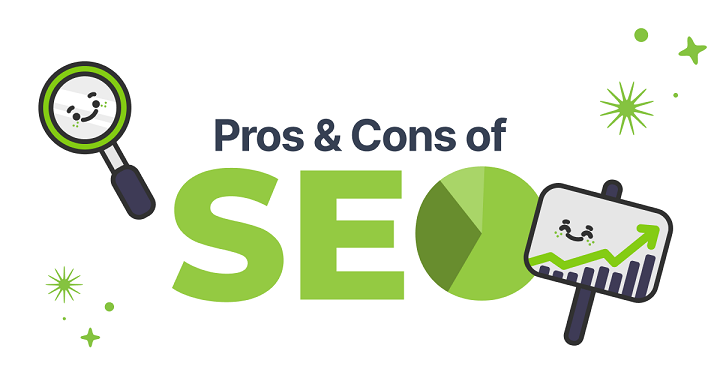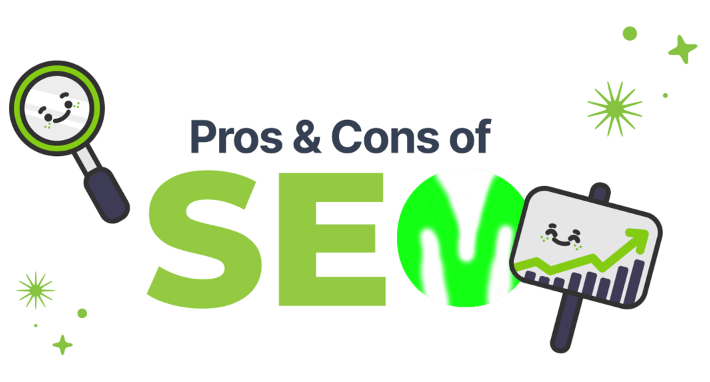When it comes to driving traffic and raising online presence, two of the most widely recognized digital marketing strategies are Search Engine Optimization (SEO),a focus on attracting users via organic means from search engines such as Google, while paying no fees for each ad this way, and Search Engine Marketing (SEM), advertising a paid service delivered by search engines but now including AdWords and more. In this article, we’ll explore pros and cons and best times to use SEO or SEM for your business.
What is Search Engine Optimization ?
SEO refers to the optimization of your website in search engines so that it obtains free or organic listings through keyword strategies, content, link building, and other technical changes that help make your website more accessible and relevant to the search engines.

Pros of Search Engine Optimization :
- Cost-Effective in the Long Run
Once you’ve optimized a page and it ranks, it can keep obtaining traffic without having recurring costs.
- Builds Credibility and Trust
More importantly, users tend to trust organic search results over ads because they find them more believable.
- Sustainable Traffic
Proper SEO campaigns create more sustainable traffic even if you stop actively working on the optimization immediately after you have optimized.
Cons of Search Engine Optimization :
- Takes Time to See Results
SEO is not an overnight plan: the impact may take months to build up especially since it deals with Google’s algorithm and a month in the digital world would be equivalent to years in the non-digital world.
- Competitive in Certain Niches
In competitive keywords , ranking could prove to be impossible, especially for smaller sites.
- Algorithm-Driven
SEO efforts can be affected by changes in search engine algorithms, which can impact rankings.
When to Use Search Engine Optimization:
- When you want long term growth and sustainability.
- If your budget is limited and want value for money in the long run.
- When your brand building rests on such a platform where credibility and trust are very important
What is Search Engine Marketing?
SEM encompasses paid ads, which is also sometimes referred to as Pay-Per-Click or PPC advertising. In this form of marketing, you will be competing for a keyword and for every click that occurs on your ad, you pay. SEMs can even appear at the very top portion of the SERPs, therefore giving instant visibility.

Pros of Search Engine Marketing:
- Immediate Result
After you have launched your campaign, your ad stands to appear almost in real-time. That means increased traffic right away.
- Targeted Audience
SEM can target specifically, so you can aim at a certain type of audience based on location, demographics, and even the time of day.
- Highly Measurable
With SEM, it is easy to track conversions, impressions, and clicks, and this makes it easy to ensure that you are seeing the required ROI and adjusting if need be.
Cons of Search Engine Marketing:
- Can Be Costly
SEM especially PPC, can inflate rapidly in costs, especially for very competitive keywords.
- Not Sustainable Without Budget
Whereas SEO drives traffic into your website through organic growth, SEM-driven traffic stops when you stop paying for the ad.
- Requires Ongoing Optimization
A high-quality SEM must regularly be optimized for good Quality Score and strong rank.
When to Use Search Engine Marketing:
- You require short-term visibility, such as a launch campaign or temporary offer.
- You seek to test keywords early and learn, which can then be translated into SEO decisions.
- You compete in an industry that would be challenging to achieve organic results in the short term.
SEO vs SEM: Comparison Table
| Aspect | SEO | SEM |
| Cost | Lower long-term costs | Can be high, with ongoing costs |
| Time to Results | Longer (months to see results) | Immediate |
| Longevity | Long-lasting, even without effort | Stops when ads are paused |
| Audience Trust | Higher trust | Lower trust (ad label present) |
| Measurability | Difficult to track exact ROI | Easy to measure and adjust |
| Best for… | Long-term brand building | Short-term promotions, testing |
Combining SEO and SEM
For most companies, SEO and SEM goes well hand in hand, especially just to get the best of both worlds. Here’s how they can work together:
- Test Keywords with SEM
This way, with SEM you are able to identify which keywords work best and you can thus direct your SEO focus on those that have already worked well.
- Immediate Visibility with SEM, Long-Term Gains with SEO
SEO creates long-term gains whereas SEM allows you a chance to attract quick traffic hence giving you brand exposure that leads to immediate results.
- Optimize Landing Pages for Both
Use the SEM data to refine your landing pages, making them both conversion-friendly and SEO-optimized
Conclusion: SEO vs SEM – Finding the Right Balance for Your Business
Both SEO and SEM have their own benefits, and what one should use would depend on what you want to achieve with your business, the duration of its achievement, and its budget. A good investment for sustainable long-term growth is by means of SEO, whereas immediate visibility from SEM could be the perfect choice if your business goals are short-term or even for testing purposes. By knowing when to use one strategy or how to bring both into coordination, you could drive targeted traffic onto your site and maximize your marketing ROI.

